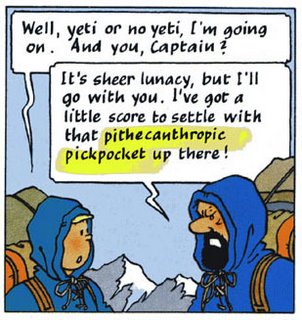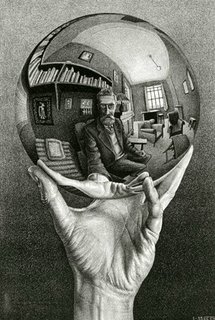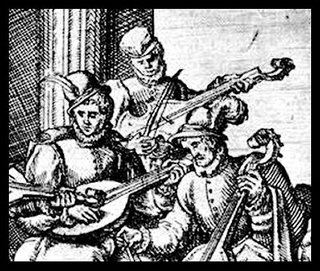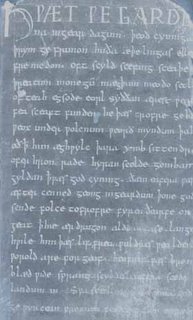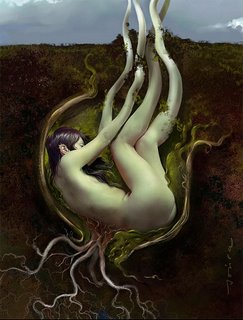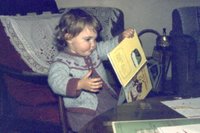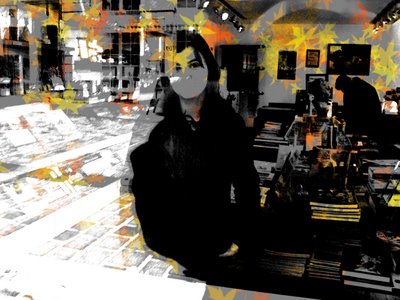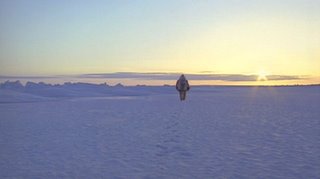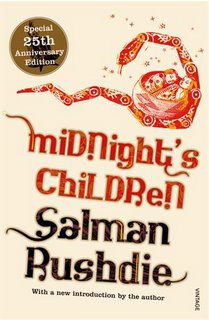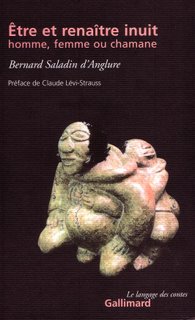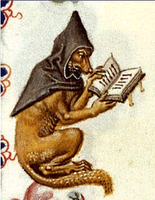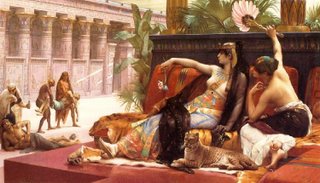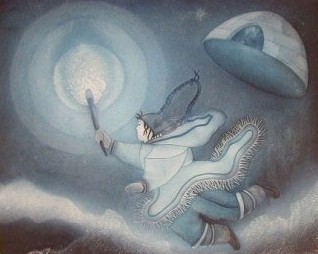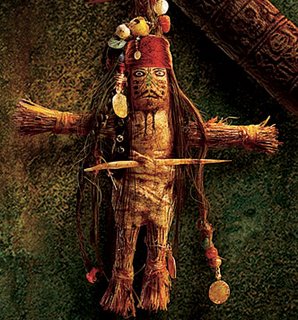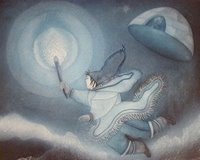 Donc voilà la petite histoire qui va avec cette image. C'est un des mythes de création de la lumière céleste chez les Inuit. Accord parental indispensable.
Donc voilà la petite histoire qui va avec cette image. C'est un des mythes de création de la lumière céleste chez les Inuit. Accord parental indispensable.
Il y a longtemps, un frère et sa soeur vivaient dans un grand village où il y avait une maison où l'on se rassemblait pour chanter et jouer, et chaque nuit la soeur et ses camarades de jeu s'amusaient dans cette maison. Alors que les lampes de la maison de jeu avaient été éteintes, quelqu'un entra et outragea la soeur. Elle ne put reconnaitre l'agresseur, mais elle noircit ses mains avec de la suie et lorsque l'agression se reproduisit, elle barbouilla de suie le dos de l'homme.
Quand on ralluma les lampes, elle vit que l'agresseur était son frère. En grande colère, elle affûta un couteau et se trancha les seins qu'elle lui offrit en disant: "Puisque tu sembles avoir du goût pour moi, mange." Le frère devint furieux, s'enfuit, en courant ici et là dans la pièce. Elle s'empara d'un morceau de bois (utilisé pour entretenir les lampes) qui brûlait vivement et se précipita hors de la maison. Le frère prit un autre morceau de bois, mais il chuta et sa lumière vacilla, ne continuant à luire que faiblement.
Petit à petit, le frère et la soeur s'élevèrent et continuèrent leur course dans le ciel, la soeur étant devenue Soleil et le frère Lune.
(Pour les habitués des références: Bordin, Guy. "A propos de la cosmogonie inuit." La Grande Oreille 22 (Dec. 2004) 31-36.)
Le soleil et la lune dans une course infinie! Et je viens de penser que la suie sur le dos du frère peut expliquer la face cachée de la lune... pourquoi on n'a pas des mythes comme ça, nous? "Dieu créa ceci", "Dieu créa cela".... pas franchement original. Pour nous, tout était organisé à l'avance, programmé, notre création du monde c'est de l'automatique. Chez les peuples "premiers" tout est accidentel: le monde, les animaux, la lumière, les hommes. Ils savent embrasser le chaos, eux!! Nous on pédale à contre-courant... c'est un autre style.
Bon évidemment c'est du traduit et c'est de l'écrit, donc ça transforme pas mal le produit en fin de chaîne, mais en l'occurence, le conditionnement sert à le rendre utilisable par les consommateurs ciblés: des occidentaux francophones... [hum, je me demande si le mélange anthropologie/ post-colonialisme/ marketing n'est pas pousser l'interdisciplinarité un peu TROP loin.]
Si un jour le temps est mis en vente, et je ne désespère pas, j'en achèterai pour faire des exercices de style à la Queneau avec des contes comme celui-là... J'en achèterai aussi pour faire de la cuisine, et du théatre. Mais c'est tout, parce que ça ne sera pas donné, et je ne veux pas acheter du temps pour travailler plus pour pouvoir en racheter plus. Après, si on m'en offre à Noël, je le garderai pour les voyages.

